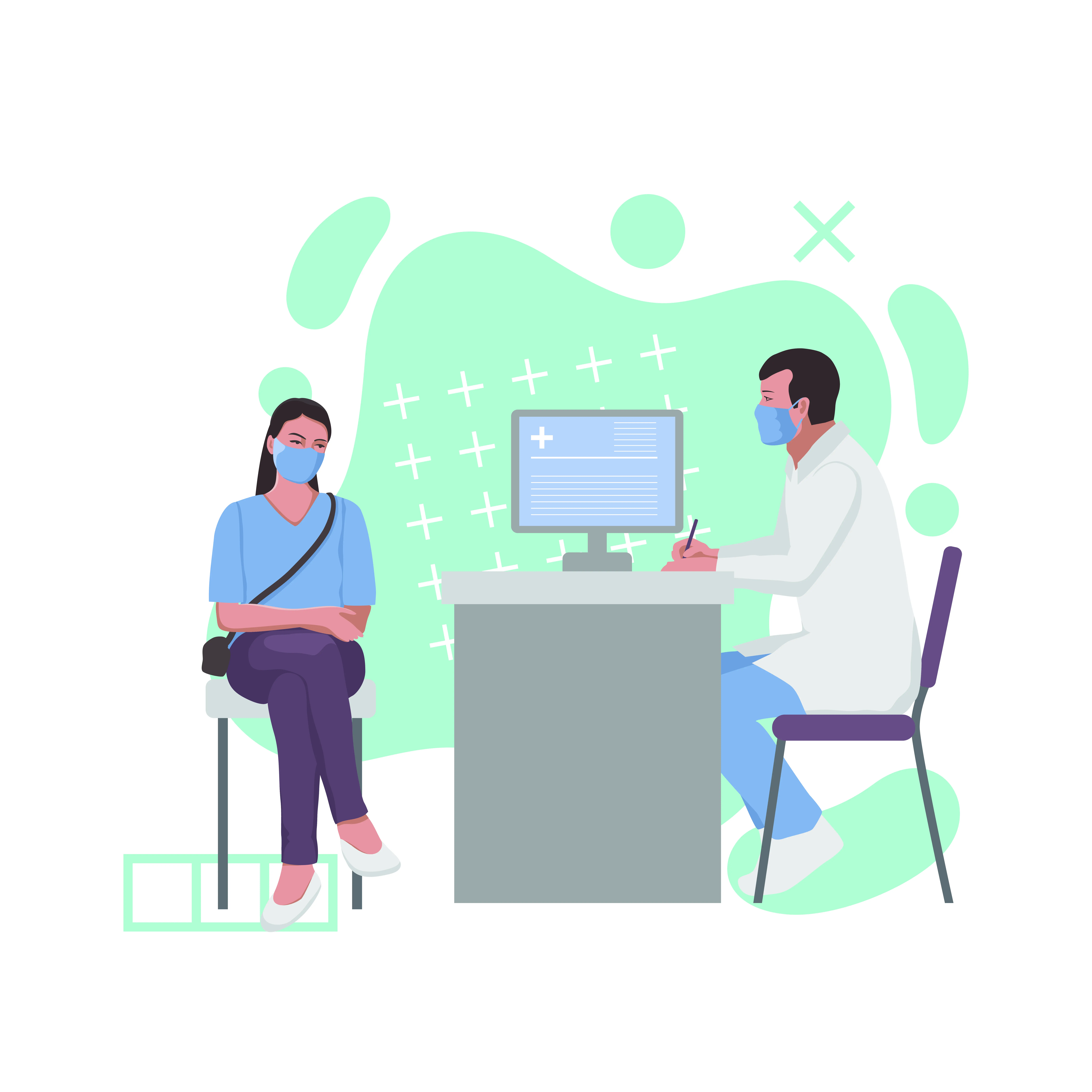Pros and Cons of an IOP (Intensive Outpatient Program)
An intensive outpatient program, or IOP for short, is a treatment model designed for people who don’t want to live a life controlled by regular appointments and structured programs. Instead, they want to take charge of their lives in a way that allows them to go back and forth between the real world and a supportive environment with minimal interruption.
The IOP is thus the perfect treatment option for people who don’t enjoy making regular visits to their doctors or psychiatrist due to various reasons. It can also work well as an initial step towards another type of residential treatment if necessary. Let’s take a look at some of its advantages and disadvantages so you can make the right decision if you are thinking about joining one.
What is an IOP?
An Intensive Outpatient Program (IOP) is an in depth addiction treatment program that is offered on an outpatient basis. IOPs demand that individuals take part in individual and group therapy, preventative education, and various activities according to their specific needs.
Those suffering from a mild-to-significant drug abuse disorder– in addition to those who have already been to an inpatient rehabilitation facility and want treatment at a lower stage– may benefit from IOPs. They are able to receive good addiction treatment as long as they remain connected to their daily obligations or jobs. Intensive Outpatient Programs are an excellent method to receive good addiction treatment while still preserving some independence.

IOP Treatment Modalities
Each individual’s treatment plan is tailored to meet their specific needs in the IOP program at Oasis. Some of the healing modalities offered are:
- Group Therapy: Group participation is as effective as individual therapy for treating addiction. In addition to teaching clients how to enhance their communication abilities and establish a new social network, group therapy is usually the core component of most IOPs. This is especially significant in addiction because it provides individuals with a location to obtain support, comfort, and truthful feedback from their peers who are also suffering from the same problems. Studies show that participants can learn to cope with issues in a healthier manner and establish a safe environment for recovery by taking part in group therapy.
- Individual Therapy: In individual sessions, drug users seek to maintain abstinence and focus on their individual issues. Clients can focus more on their individual problems in individual sessions. For example, some people do not feel comfortable discussing personal issues in a group setting, so individual therapy gives them the chance to do so. The frequency of individual therapy sessions varies based on the program, but they are usually offered weekly, if not more often, especially in the early stages of recovery. Each client is matched with a therapist who will seek to establish a close, honest relationship based on trust and recovery commitments.
- Holistic Therapy: There are several alternative therapies that can be incorporated into traditional treatment. Art therapy, music therapy, adventure therapy, and equine-assisted therapy are just a few of the possibilities. Nonverbal healing methods are used in these sessions, which typically take place in a group setting. A majority of these therapies are beneficial for reducing stress and improving mood in addition to alleviating symptoms. Patients may experience an endorphin release from painting or playing music, which results in a general feeling of calm.
- Family Therapy: Family members may be involved in Oasis Recovery treatment, especially when indicated. The opportunity to have family members involved in the treatment process has been found to increase the likelihood of long-term abstinence. Family members are educated about addiction problems and how their loved one feels in individual and group therapies. Family therapy is typically administered only when necessary, in addition to individual and group sessions.

Pros of an IOP
First and foremost, an IOP allows you to focus entirely on getting better. The regular structure of a medical or psychiatric facility can easily be disrupted due to staff scheduling, patient needs, and other factors. However, most IOPs are designed to operate with on-site staff members only. Furthermore, the program is run almost like a business or a clinic. In other words, patients aren’t expected to spend all day sitting in a chair listening to their psychiatrist lecture them. They’re free to engage in regular activities while they receive their treatment.
This provides an optimal environment that allows you to get the most out of your care while also having the freedom to explore your own interests and hobbies all while living a normal life. Moreover, some people choose IOPs for the privacy and relative calm energy that the program provides. Living at home or in a residential treatment setting can be stressful especially if you have family members or other people who aren’t involved in your care. An IOP, on the other hand, is focused solely on you and your treatment. This can reduce the level of stress in your life and allow you to get better quicker.
Cons of an IOP
Despite their advantages, IOPs can be challenging. Some people find the intensity of these programs too difficult to handle. This is especially true if you’ve struggled with addiction for a long time and have a serious substance use problem that requires significant amounts of professional care. You’ll have to spend a lot of time in therapy.
You also might feel disconnected from friends and family while you are in treatment. Some people find it difficult to leave their home to attend group therapy sessions, and they miss out on other activities because of it. This can be a serious obstacle to your recovery. These programs are often quite expensive. Some people can’t afford intensive treatment, and they wind up falling back into their old habits.

When is an IOP Program Right For You?
An intensive outpatient program (IOP) is a great option for individuals seeking addiction recovery support, structure, community, and accountability, in addition to more flexibility and freedom than in a Partial Hospitalization Program (PHP). An IOP program can be used as a step-down program after the PHP is completed. Patients can also be enrolled individually without completing a PHP first.
Those looking for help overcoming addiction often find inpatient care to be demanding. Although inpatient programs offer the highest level of care, separating addicts from access to their drug or alcohol dependencies as well as from other people who may encourage relapse or sabotage recovery efforts, they don’t always suit the client’s specific situation. Living full-time in a treatment facility is not always possible for people that cannot abandon their families, jobs, or lives for an extended period of time due to prior obligations.
If you have just completed a partial hospitalization program and are looking to find a transitional aftercare program or if you have work, family, or pet obligations you can not afford to abandon to enter a PHP, an IOP (intensive outpatient program) is likely the best rehab solution for you.
Finding the Best IOP Program Option
Before making the decision to join an IOP, make sure they offer the treatment options you need. Make sure the program you are considering allows you to receive medication if you need it and offers other treatments like therapy and counseling. Furthermore, make sure the program you are considering meets certain criteria. For instance, you should make sure the program is licensed by the state, accredited, and has a proven track record of success.
You should also make sure the program has staff members who have experience in the specific type of mental health condition you have. When visiting the program, be careful about one thing in particular. One study found that people who visited an IOP reported that they felt more connected to the treatment and staff at the IOP than those who visited a hospital or clinical setting. Needless to do, however, don’t feel like you need to visit the program for a long time. If you feel like you can go there and get better, then it’s worth a try.

In Conclusion
With the right IOP, you can gain access to some effective treatment options that are often not available in a clinical setting. An IOP can provide you with a great way to receive treatment while continuing your normal life. We hope that this article has helped you to better understand what an IOP program is and if you should or should not go to one. You should also consider whether or not you’re ready to make a big change in your life. If you’re ready or have any further questions, call or visit Oasis Recovery Center and start your journey to recovery today!
Trust the Experts
Addiction and mental health disorders can affect anyone. If you or a loved one are currently considering an IOP for treatment, help is available at Oasis! We encourage you to reach out to the professionals at Oasis Recovery to learn more about our personalized treatment programs and mental health services. Oasis Recovery was founded from firsthand experience of addiction and recovery, with a mission of providing a space where people can heal from addiction in a compassionate, creative, open-minded, and heart-centered environment. We believe recovery is always possible. Our experts work with you to design a treatment plan that fits your needs. Common treatment programs include:
- Intensive Outpatient Programs (IOP)
- Full-time Addiction Treatment on campus
- Aftercare Services
Contact us today for more information about how our programs and services can help you get your life back on track. You no longer have to struggle with this on your own. We are here to help.









